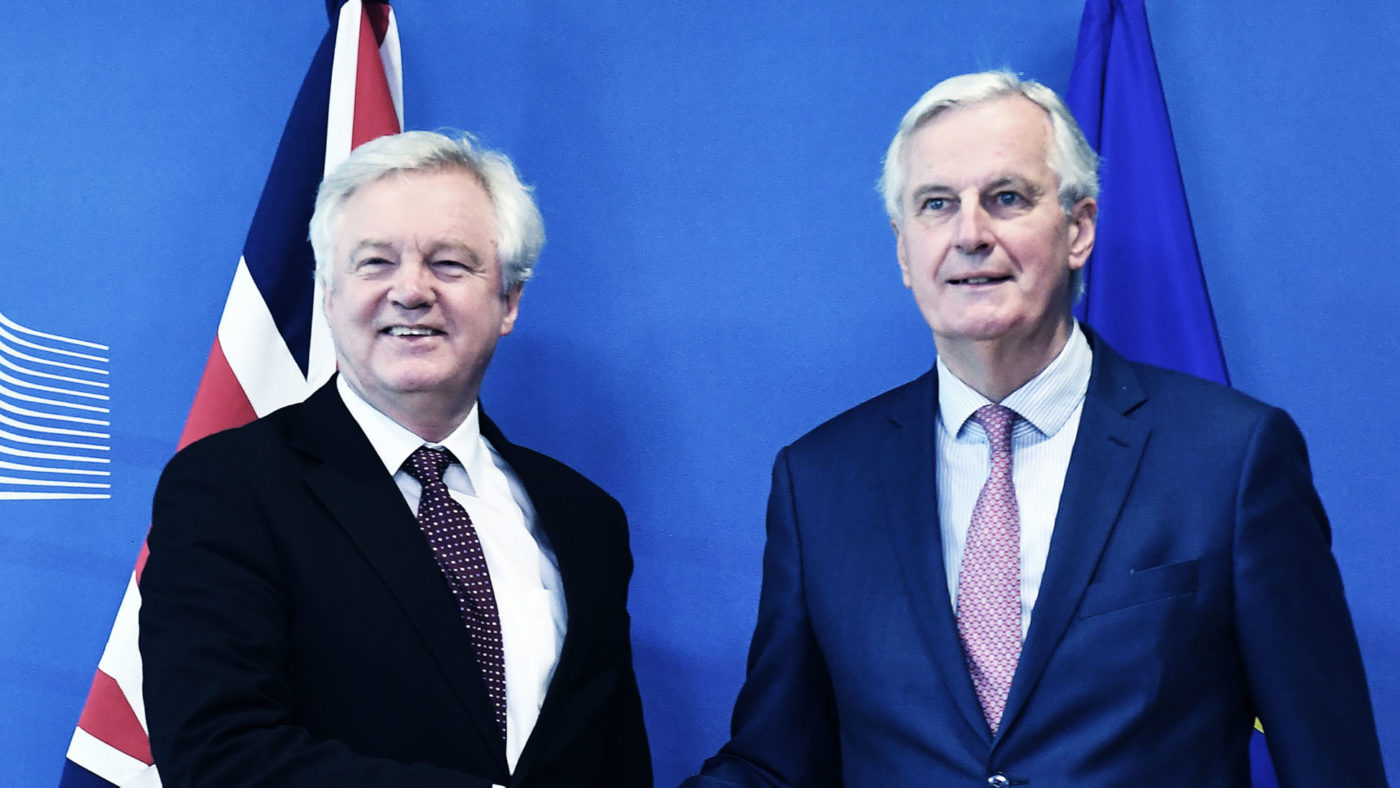Great news! The EU divorce bill of £35-£39bn has gone down already and might be lower still. That is what the National Audit Office has found.
The NAO published its review of the Brexit financial settlement this week and rightly warned that although the £35-£39 billion range “were consistent with” the Treasury’s internal modelling, “the actual value of the settlement is uncertain because it depends on future events”.
Cue beating of chests and wailing in the usual quarters. The Guardian, for instance, reported that the cost of the Brexit divorce bill could be “billions higher”.
The truth, however, is that future events might make the bill lower. Indeed, they have already done so.
Take the exchange rate. The NAO makes clear that the deal was struck when the pound was weak, at €1.13. It has since strengthened and was over €1.15 this week before dropping back to €1.14 after the Governor of the Bank of England hinted interest rates may not, after all, go up in May.
As sterling is gently coming back into fashion, partly on hopes that the UK may stay in the Customs Union (which would remove some short term uncertainty), there is every possibility it will strengthen further in the coming months or years. As a rule of thumb, for every euro cent the pound rises, the Brexit bill goes down by £330m.
Then there is economic growth. Inconveniently for fanatics on both sides of the argument, the economy is bumbling along with growth below 2%. Remainers are frustrated that it has not gone off a cliff, as they predicted, and Leavers are blind to the fact that it could be doing much better and one reason it isn’t is the huge opportunity cost of the Brexit process.
Either way, the growth of the UK relative to its EU peers has a bearing on the ultimate Brexit Bill. As the NAO says, our remaining contributions to the EU Budget until 2020 will be set via a complex formula which adjusts for relative economic growth.
Do you remember in 2014 when we suddenly had to pay £850m more into the EU Budget because Britain’s growth was better than expected? Well, the same thing could now happen in reverse. That should shave a couple of hundred million off.
Then there is the residual amount we owe to pay the pensions of EU staff. The EU, quite rightly, drove a hard bargain on this as there surely would be uproar if the likes of Lord and Lady Kinnock’s comfortable retirement was put at risk by a failure to fund future pension liabilities properly.
However, the NAO draws attention to the fact that the UK’s £8.5bn share of the EU’s liability for future pensions and health insurance is calculated using a 0.3% discount rate. For those who, like me, are not financial geniuses, that is the number by which the value of future liabilities are reduced if paid off today to take account of interest rates and inflation.
A 0.3% discount rate is ludicrously low and out of date, especially for the 40 year liability of EU pensions. The convention is that the 10-year gilt yield is used as the discount rate. That has been recovering from the 0.5% it hit just after the EU Referendum and is now at 1.5%. Most sensible people expect interest rates to go higher. If they had used today’s rate, the present value of the EU pension liability would be about £5.3bn.
Put this together, and since the divorce deal was struck it is possible to make a reasoned case that it has likely gone down by as much as £5bn.
Will this be the case when the sums are finally done? Who knows. As the NAO says, the actual value “depends on future events”. My point is that good things can happen, as well as bad. Too much economic commentary, especially when it comes to Brexit, is dominated by the pseudo-wisdom of the pessimists. In the end, whether Brexit works will depend on the many long-term decisions we take ourselves and it shouldn’t hang on “the divorce bill” which, in the grand scheme of things, is trivial and will be offset by not having to make EU contributions in the future.


